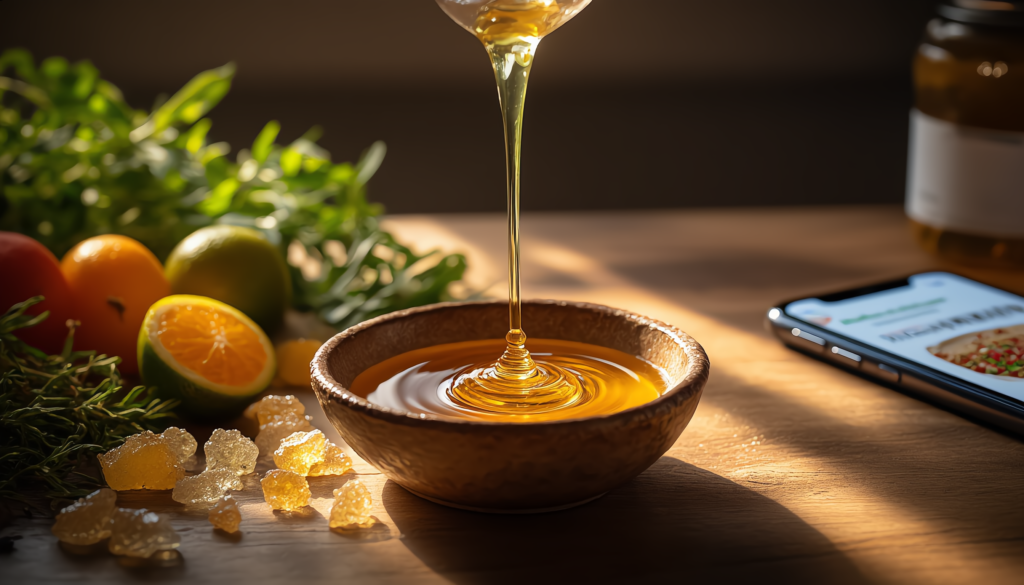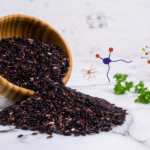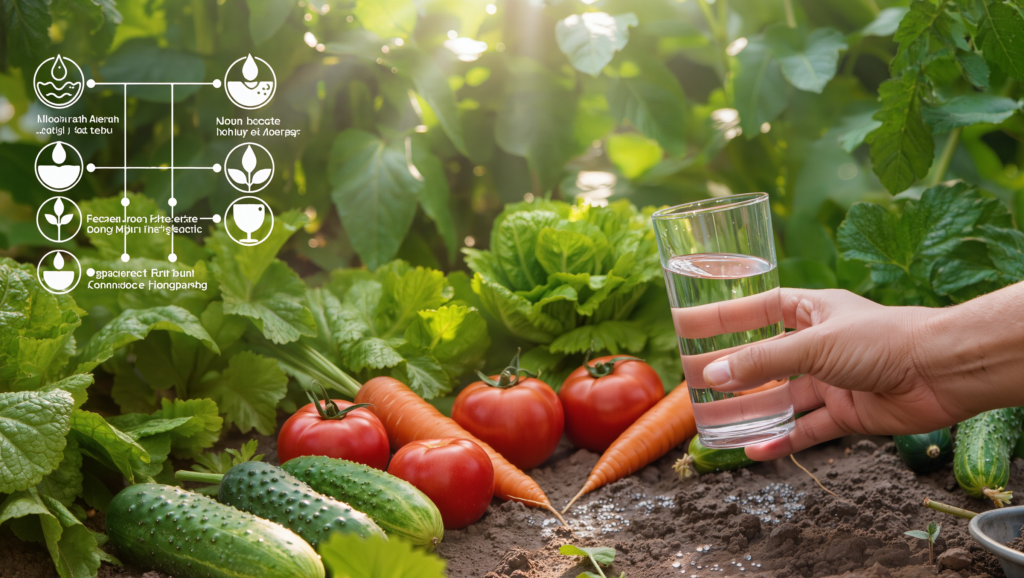If you’ve ever browsed the “natural” aisle at your local grocery store, you’ve probably seen organic agave nectar sitting pretty next to the honey and maple syrup. Marketed as a low-glycemic, vegan-friendly, and “healthier” alternative to sugar, agave nectar has become a darling of the wellness world. But is this golden syrup truly a sweet deal for your health—or does it hide some not-so-sweet secrets? Let’s dig into the science, compare it to other sweeteners, and find out if organic agave nectar deserves a spot in your pantry or if it’s better left on the shelf.
What Is Organic Agave Nectar?
Agave nectar (sometimes called agave syrup) is made from the sap of the agave plant, native to Mexico and the southern United States. The plant’s sap is extracted, filtered, and then heated or treated with enzymes to break down complex carbohydrates into simple sugars, resulting in a syrup that’s about 1.5 times sweeter than table sugar.
Organic agave nectar is produced without synthetic pesticides or fertilizers, but the end product is still highly processed. While the agave plant itself contains beneficial compounds, much of this goodness is lost during the syrup-making process.
The Nutritional Breakdown
Calories and Carbohydrates
- Calories: About 310 kcal per 100g (roughly 21 kcal per teaspoon).
- Carbohydrates: 76g per 100g, almost entirely from sugars—primarily fructose (about 82%) and glucose (18%).
- Fiber: Negligible (0.2g per 100g).
Vitamins and Minerals
Agave nectar contains small amounts of B vitamins (B1, B2, B6, folate), vitamin C, vitamin K, and vitamin E, but you’d have to consume a lot to get any meaningful benefit—something no nutritionist would recommend.
The Glycemic Index (GI): Agave’s Main Selling Point
One of agave nectar’s biggest claims to fame is its low glycemic index (GI). The GI measures how quickly a food raises blood sugar:
- Agave nectar GI: 13–27 (very low).
- Table sugar GI: 65–92 (high).
- Honey GI: 58–83 (medium-high).
- Maple syrup GI: 54 (medium).
A low GI means agave nectar won’t spike your blood sugar as quickly as table sugar or honey. This makes it attractive to people with diabetes or those watching their blood glucose.
The Fructose Factor: Sweet but Sneaky
Here’s where things get sticky. Agave nectar is extremely high in fructose—even more so than high-fructose corn syrup (HFCS). While table sugar (sucrose) is 50% fructose and 50% glucose, agave nectar can be up to 90% fructose.
Why Does This Matter?
- Fructose is metabolized differently: Unlike glucose, which is used by every cell in your body, fructose is processed almost entirely by the liver. Consuming large amounts can overload the liver, leading to increased fat production, higher triglyceride levels, and potentially nonalcoholic fatty liver disease.
- Linked to metabolic issues: High fructose intake is associated with insulin resistance, increased belly fat, higher LDL (“bad”) cholesterol, and a greater risk of type 2 diabetes and heart disease.
- Doesn’t trigger satiety: Fructose doesn’t stimulate insulin or leptin as much as glucose, which means you might not feel as full after consuming it—potentially leading to overeating.
Health Benefits: Any Silver Linings?
Antioxidants and Prebiotics
- Antioxidants: Agave nectar contains some antioxidants (flavanones, flavones, tannins, saponins), but much of this is lost during processing.
- Inulin: Raw agave contains inulin, a prebiotic fiber that supports gut health. However, most commercial agave nectar has little to no inulin left after processing.
Other Potential Benefits
- Low GI: May be preferable for blood sugar control compared to table sugar or honey, but only in very small amounts.
- Vegan and allergy-friendly: Suitable for people avoiding honey or with certain food allergies.
Health Risks: The Dark Side of Agave
1. High Fructose Content
- Liver overload: Excess fructose can be converted to fat in the liver, increasing the risk of fatty liver disease.
- Insulin resistance: Chronic high fructose intake can lead to insulin resistance and metabolic syndrome.
- Heart health: High fructose intake is linked to increased triglycerides and LDL cholesterol, raising cardiovascular risk.
2. Calorie Dense
- More calories than sugar: Agave has more calories per serving than white sugar (60 vs. 48 per 3 teaspoons).
- Easy to overdo: Because it’s sweeter than sugar, you might use less, but it’s still easy to consume too much.
3. Highly Processed
- Not “raw” or “whole”: Most agave nectar is highly refined, stripping away beneficial nutrients and fiber.
- Not all brands are equal: Some products labeled “organic” or “natural” are still heavily processed and may contain added syrups or fillers.
4. Not for Infants
- Unpasteurized risk: Like honey, agave nectar should not be given to infants due to the risk of botulism.
Agave Nectar vs. Other Sweeteners
| Sweetener | GI | Fructose Content | Calories (per tbsp) | Notable Pros | Notable Cons |
|---|---|---|---|---|---|
| Agave Nectar | 13-27 | Up to 90% | 60 | Low GI, vegan | High fructose, processed, more calories |
| Honey | 58-83 | 40% | 64 | Antioxidants, less processed | Higher GI, not vegan, infant risk |
| Maple Syrup | 54 | 35% | 52 | Antioxidants, minerals | Higher GI, less sweet |
| Table Sugar | 65-92 | 50% | 48 | Cheap, familiar | High GI, empty calories |
What Do the Experts Say?
- American Diabetes Association: Agave is a sweetener to limit, just like sugar, honey, and maple syrup.
- American Heart Association: Recommends no more than 6 teaspoons of added sugar per day for women and 9 for men—including agave.
- Nutritionists: Many argue that agave nectar is not a healthier choice than other sweeteners and should be used sparingly, if at all.
The Bottom Line: Sweetener or Health Saboteur?
Organic agave nectar is not the guilt-free, “miracle” sweetener it’s often made out to be. While it does have a low glycemic index, making it less likely to spike your blood sugar, it’s extremely high in fructose—a type of sugar linked to a host of metabolic problems when consumed in excess. The small amounts of antioxidants and nutrients it contains are largely lost during processing, and any potential benefits are outweighed by the risks of overconsumption.
If you love the taste and want to use agave nectar occasionally in small amounts, it’s unlikely to harm you. But if you’re reaching for it daily in hopes of a health boost, you’re better off sticking to whole foods or choosing less processed sweeteners like pure maple syrup (for minerals and antioxidants) or even raw honey (if you’re not vegan).
Remember: No added sweetener—organic or not—is truly “healthy” in large amounts. For the best health, focus on naturally sweet foods like fruit, and use all added sweeteners sparingly.








